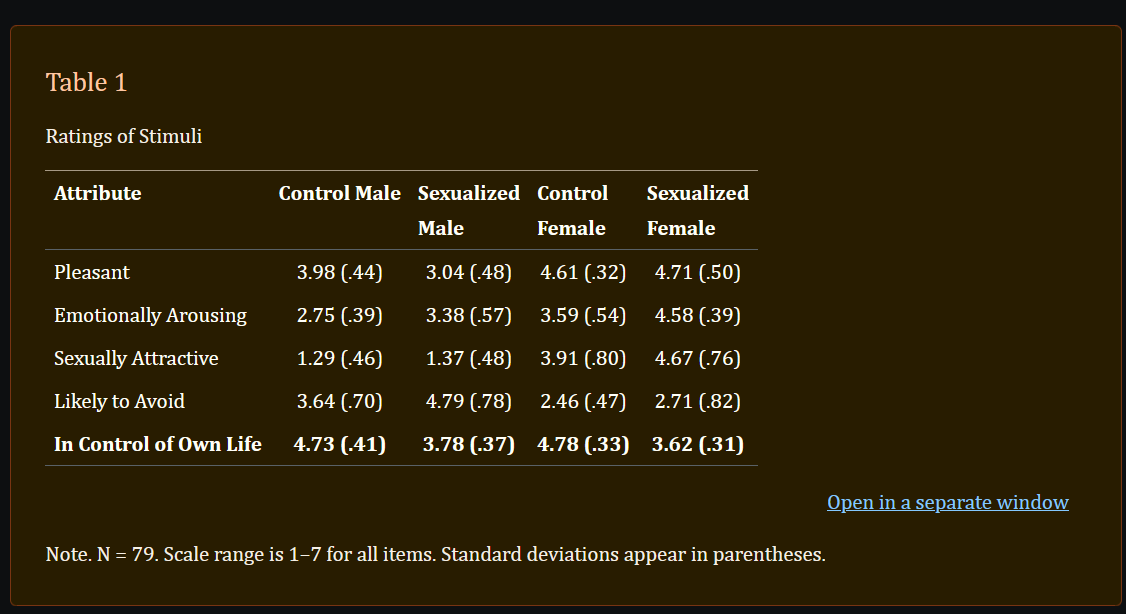response to https://discord.com/channels/540390241043873803/545506091388108831/1290718964321751070, https://pin.it/7370tbp8B, from 451728177757421569
2024-10-02
disclaimer, this paper studied 19 men. all cishet native english men in their 20s. The results are intriguing, but not definitive. The study was published in a journal in 2011, and first published in 2010.
The paper discusses "mental state attribution", assigning mental states (intentions, beliefs, desires) to entities in your head - living, or otherwise.
It's pretty nuanced, we tend to 'dementalize' (not assign mental states) to entities that disgust us. For the people they studied, it was drug addicts being dementalized. That is, we actively avoid attempting to empathize with them ("suggesting people spontaneously infer the contents of “disgusting” targets’ minds less than other people’s minds").
Now,
"More to the point, sexual objectification decreases attribution of complex mental states to targets "
If you've read Kahneman's "Thinking Fast and Slow", he discusses Priming (thinking about or observing something makes you predisposed to think about it again. For example, ||if the bus you're on has a license plate with 74 on it, and you're boarding it on the 74th street, and the time is 17:40 - If I asked you for a random number, the chances of you saying 74 are much higher.
Another example, now you see me's starting scene, managed to guess many audience members' cards as well - Because the magician primed your brain by repeating one card in the deck a bunch of times, and by flipping slower than the rest, priming you to pick that card.||)
Back to the point, the study says that when men see sexualized women in adverts, they're primed to objectify women for a short while after, and to keep objectifying that woman in general (across time).
You should totally read this part,
For example,
- viewing commercials with sexualized women facilitates men’s responses to sexist words (e.g., babe, bimbo) and slows responses to nonsexist words pertaining to women (e.g., mother, sister),
- increases stereotyped information acquisition about a female interviewee (i.e., participants remember more about physical behavior and appearance, less about personality, biographical information, and performance evaluation),
- and increases sexualized behavior in subsequent interaction with her (e.g., sitting closer than control subjects sit
It gets better, our intentions with the person affect how we see them. Sexualized women are perceived to be useful for sex, and therefore that intention interferes with recognizing their humanity.
Now, I'm not keen on the notion that intention interferes with assigning agency (or humanizing them, in a way) - Because I've observed the same behaviour in cishet females, towards other women. Their intention isn't sex, obviously, but it still interferes with their agency, why?
haven't gone thru the study fully, still at Sexist Attitudes.
Also, interesting table,

![[nihms515324.pdf]]